Despite harsher environmental conditions that drove a number of Abadis into the cities, and creeping urbanization into their habitat that is forcing changes to their lifestyle, the Ababda have kept up their traditions. These include traditional leadership structure of the tribes and clans, as well as social norms.
TRIBE STRUCTURE & TRIBAL LAW
Ababda people are divided into a number of tribes, which in turn are divided into clans. Two of the larger tribes are El-Gami’ab, which includes ten clans, and the El-Mohamed’ab.
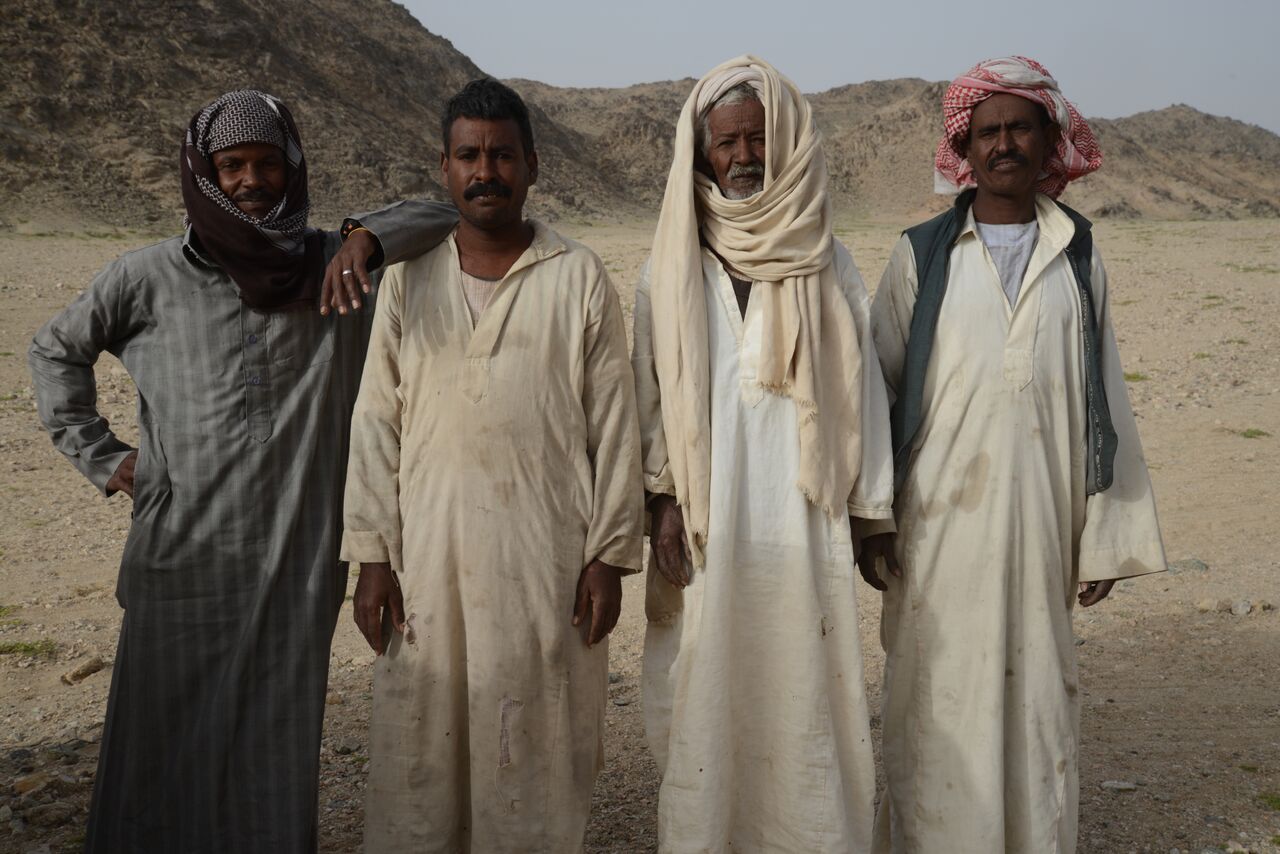
By: Gianni Bodini
Traditionally, Ababda practice consensus-based governance and decision-making. Each clan has a leader, and leadership is passed on from father to son. Traditional community leaders are respected and their advice and guidance is sought, also by official government-appointed leaders. Traditional leaders sit in tribe councils and arbitrate any conflict between tribe members or with outsiders. They are representative of the interests of all. Feasts and weddings are used as occasions for the tribe and leaders to convene and deliberate.
FEASTS & CELEBRATIONS
In addition to the major Muslim feasts, the Ababda also celebrate “mulids” – festivals commemorating revered sheikhs. These religious feasts are important occasions for members and leaders of the different tribes and clans to come together and consult on pressing issues or resolve conflicts. “We are always looking for excuses to get together”, a community leader said laughingly.
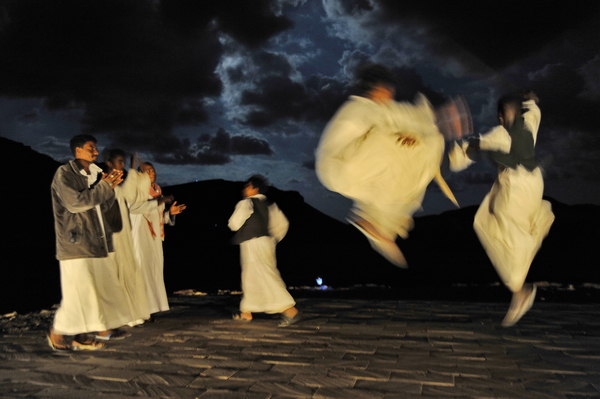
By: Franceso Tommasinell
Other than religious feasts, weddings are the biggest social celebrations. In olden times, it took up to three years to arrange for a wedding. Arrangements and dates were intricately planned around rain season and trade convoys to ensure the largest number of people can attend. Traditionally, weddings lasted seven days, with another feast taking place on the last day. “Now, they merely last for three days”, a tribe elder lamented.
LANGUAGES & DIALECTS
The Ababda speak Arabic. Their dialect is to a large extent intelligible to non-natives, if a little bit too fast sometimes. As in any dialect, Ababda have their distinguishing vocabulary variations. One example is the word “kolah” that is used to refer to a hill, as opposed to “tabbah” – the term commonly used throughout rural Egypt. In addition, they also have a number of endemic terminology used to describe their cultural and environmental particularities.
FOOD STAPLES & FAMOUS DISHES
Although herders and livestock keepers, Ababda reserve eating meat for special occasions and feasts. In addition to fish, for which they rely on the sea, their diet consists mostly of wheat and pulses, especially lentils. This and other food staples such as rice and oil are transported to them from Aswan. In older days, they used to buy wheat as grain and grind it by stone when needed. Now they buy it as refined flour.
Gha’boori
Gha’boori (Arabic: قابوري) is a type of bread. The dough is a yeast-free mixture of wheat flour and water. It is baked in embers. To make it, coal is lit on a clean sandy surface. Once glowing red, part of it is removed, and the disc-shaped dough is placed on the embers, and covered with the removed rest.
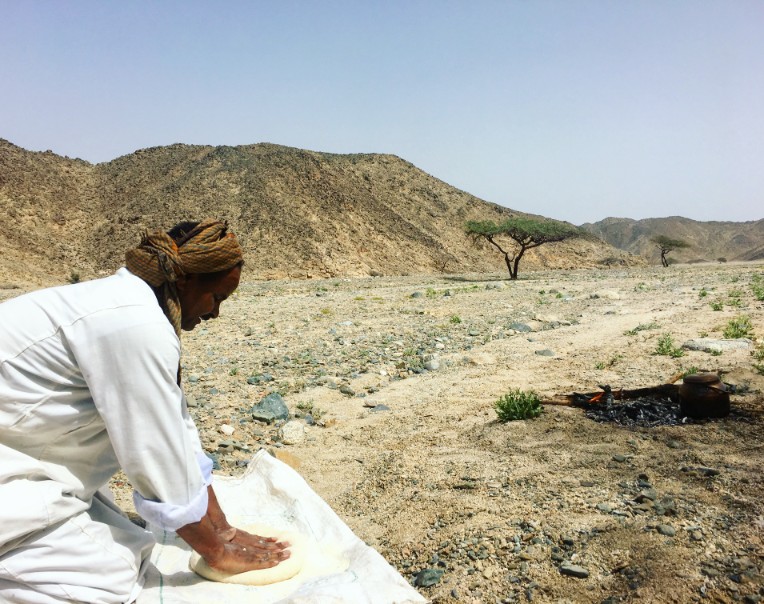
By: Samah Abaza
Fish
Ababda have always relied on the sea for food. 60 Fish is typically prepared the same way as meat (see above). Among the most popular fish types are spinefoot fish (Arabic: سجان mullets (Arabic: بوري), parrotfish (Arabic: ديرح), and dusky spinefoot (Arabic: اطبطا Swordfish is also caught. A prized catch, it is sold to generate income rather than eaten.
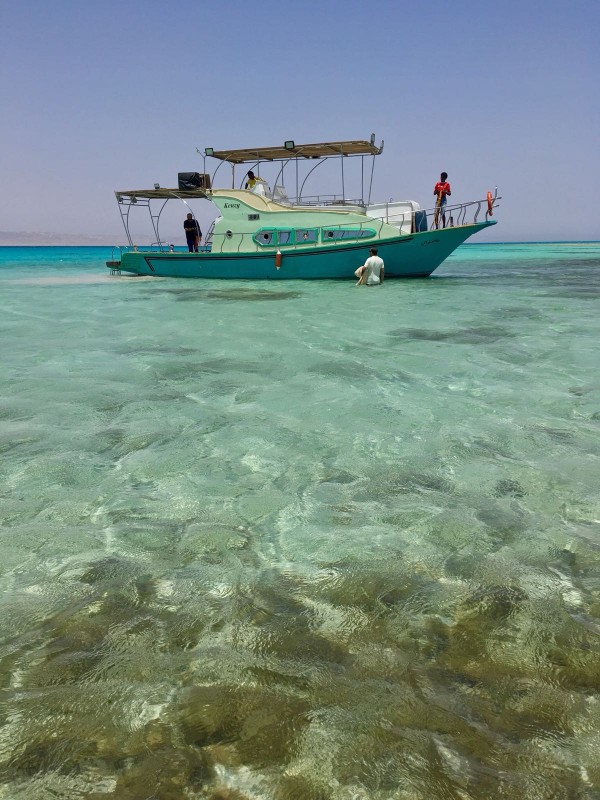
Sel’laht
(Arabic: صلت)is the most famous way to prepare meat, usually buck. Meat that has been cut up and spiced is grilled directly on stone heated by coal and fire. Noteworthy here is that, out of respect for nature, Ababda always use the same site for their fire until they move camp to a different location. Another way to cook the meat is by making a stew: meat is boiled in spiced and salted water over coal fire. Typically, in a feast, both preparation methods are employed.These methods of cooking are also used to prepare fish. If the slaughtered meat is plenty, the remaining fresh meat is dried for storage. Shah’teer (Arabic: ريشط) is thinly sliced, salted and air-dried meat.
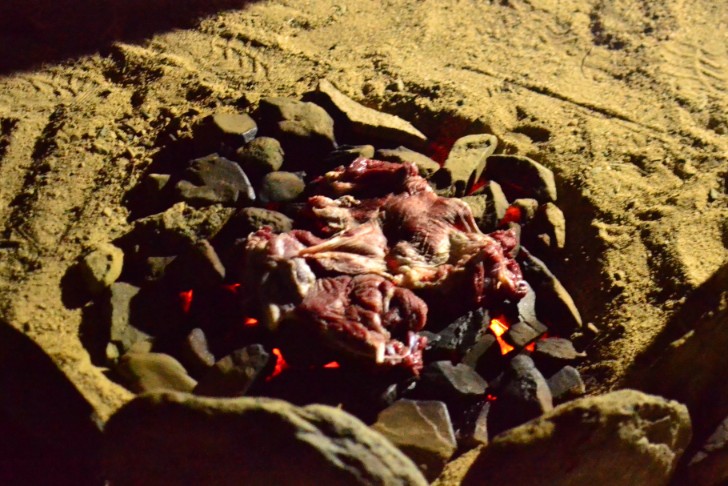
By: Reem Labib
Gah’ba’nah
Gah’ba’nah (Arabic: ةنبج) is the traditional coffee drink. It is prepared from green coffee beans that are roasted over coal fire in a ladle-like container. Roasted beans are then ground with dry ginger and cardamom with a pestle. Water is added and the drink is then brewed in the traditional small gourd-shaped container in the fire. Sugar is then added to taste.
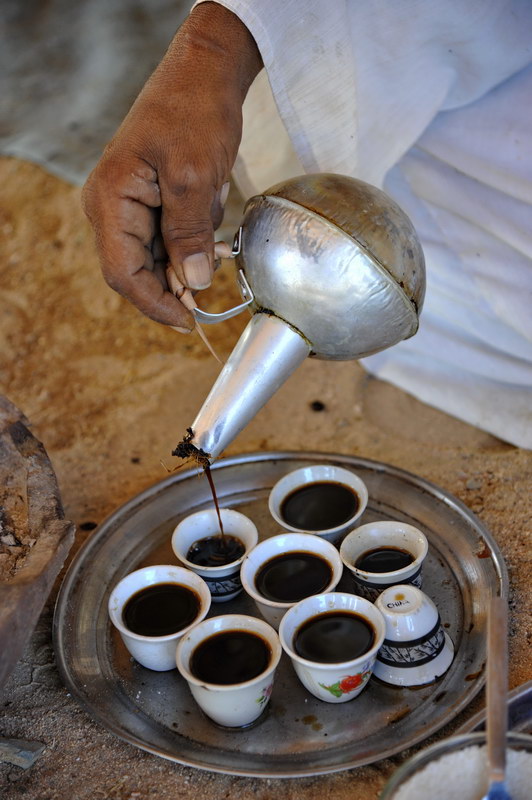
By: Franceso Tommasinelli
ABODE & COSTUME
Ababda traditionally construct their houses from wood boards and driftwood, as well as dead branches which they line with woven reed and wool.
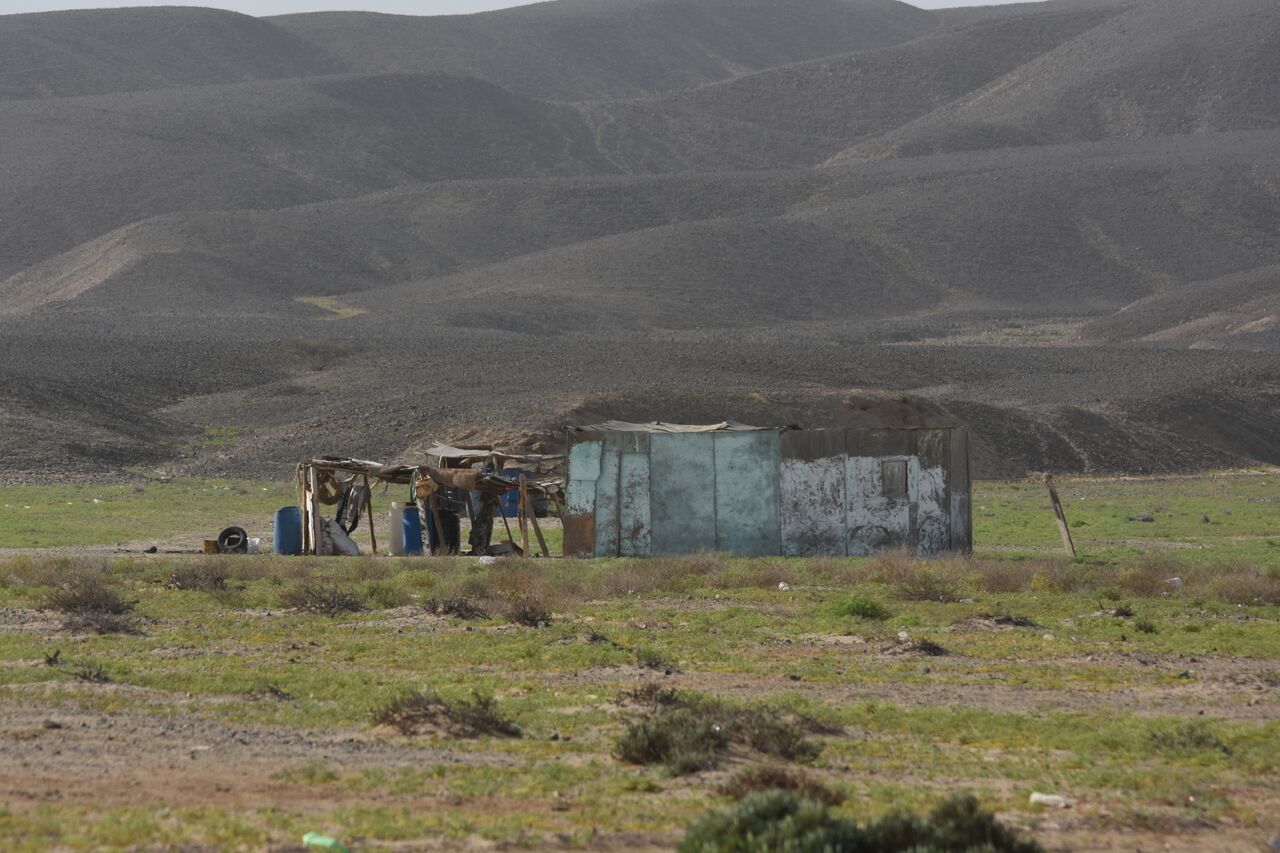
By: Gianni Bodini
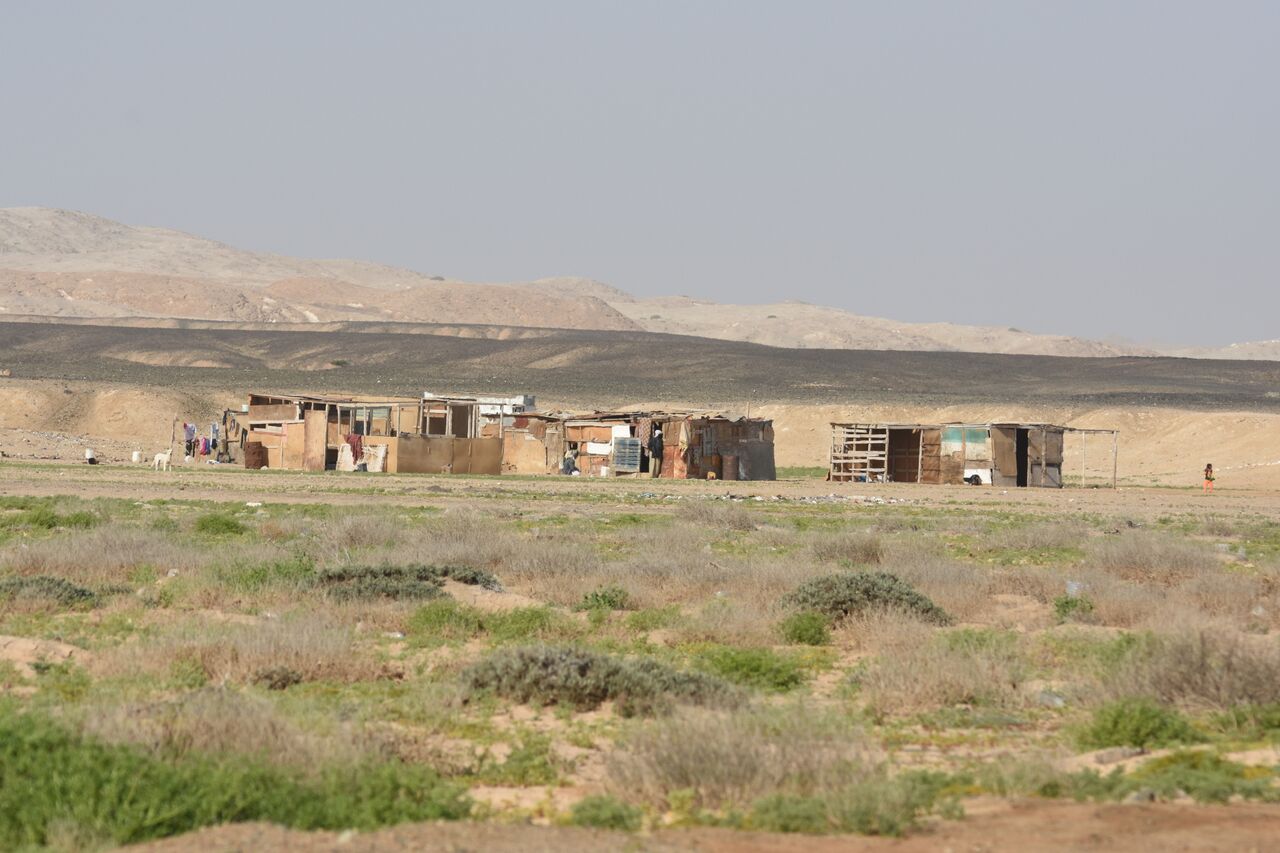
By: Gianni Bodini
In WGNP, a lot of Ababda now reside in government-issued housing. In Abu Ghosoun and Hamata, these are built from bricks and mortar, and feature dome shaped roofs.
The traditional costume of Ababda men is still commonly worn to this day. It consists of light white shirt, the Arráh’gah (Arabic: قةارع, which literally translates to “sweater”. This worn over wide white pants called Booga. A vest is worn over the shirt, shoes or sandals that can be easily taken off when stepping into a house or on a mat.
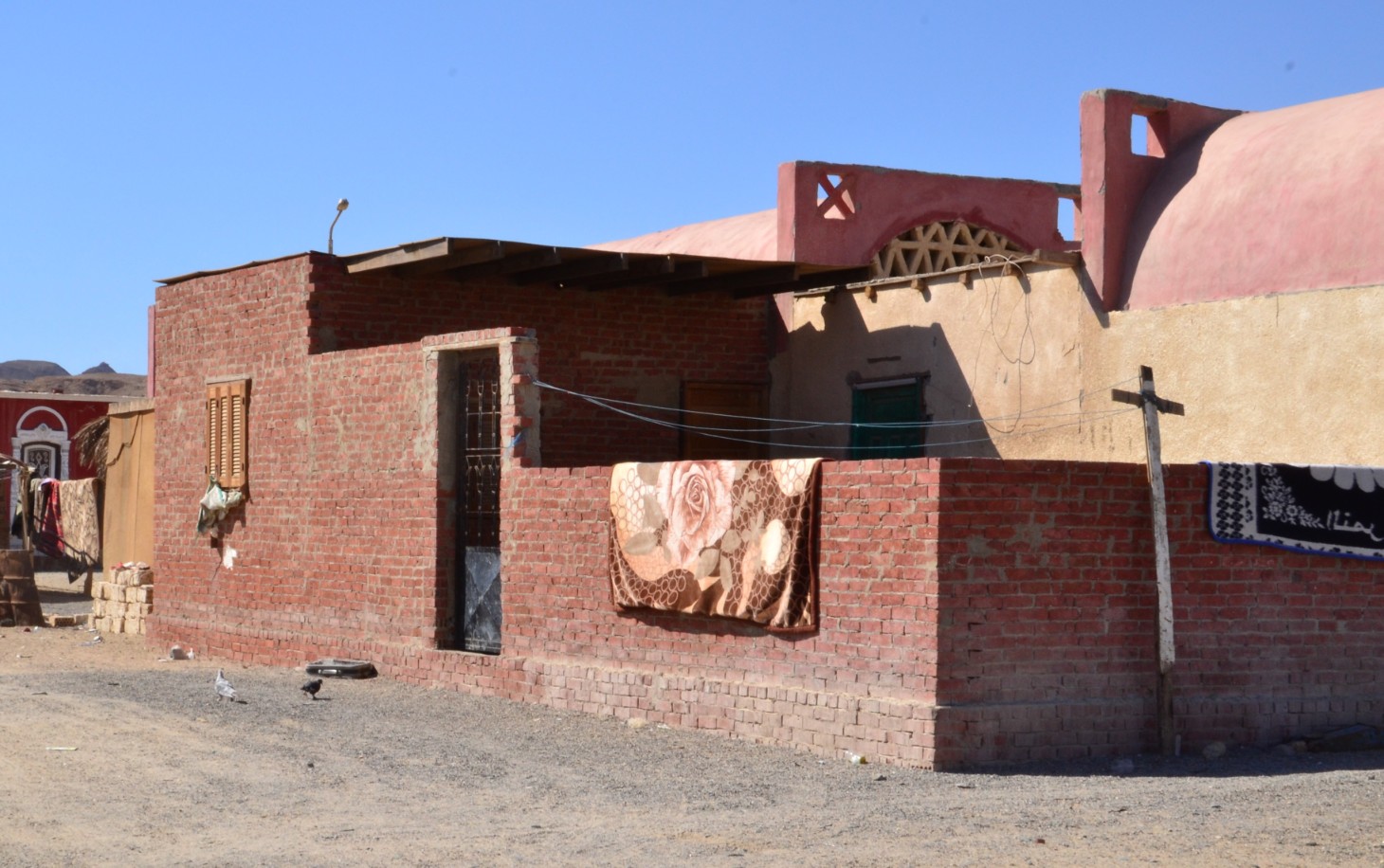
By: Reem Labib
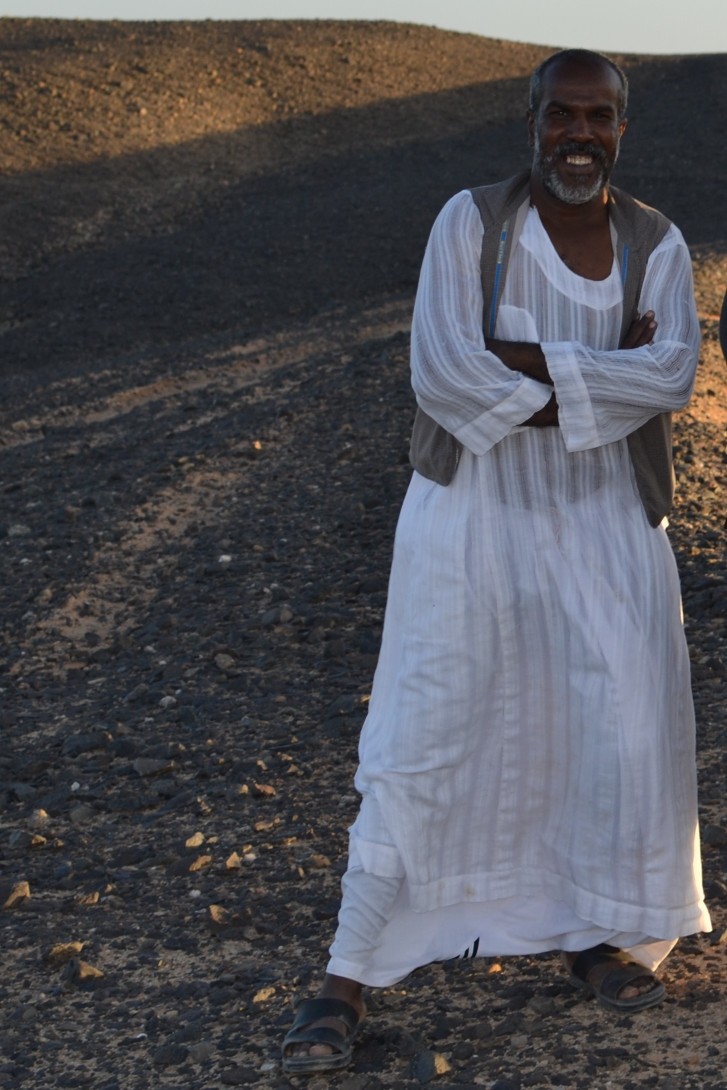
By: Reem Labib
DESERT NAVIGATION
The Ababda have always relied on the stars to guide them through the desert. They know the North Star and have their names for star constellation. A desert-faring people since the dawn of time, even they can sometimes get lost in the desert.
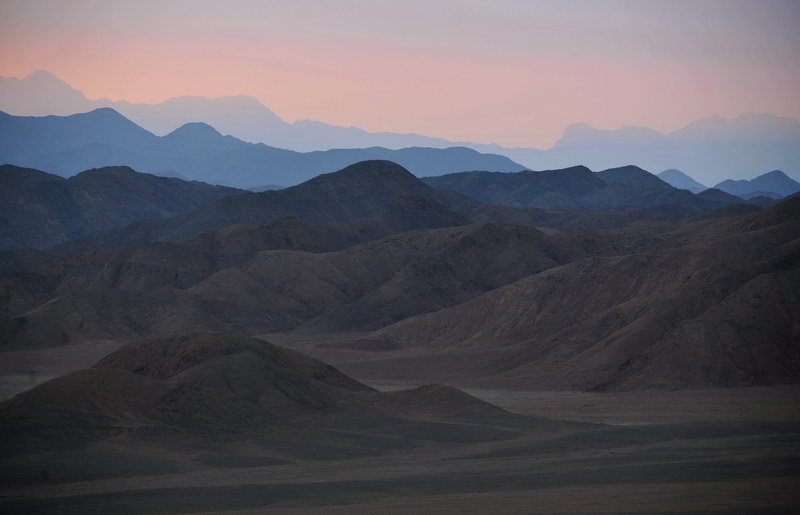
By: Francesco Tommasinelli
The way Ababda find their way back is to, first of all, take a nap to rest and clear the mind. After the sleep, they look for the nearest well. If lost within a group, the most experienced member is assigned as leader. His decisions and directions are then not disputed by anyone. Guided by instinctive intuition, nature elements, and the stars at night, a well is usually always found soon enough. Once at it, with their water skins replenished, it is easy enough to find the way back along the network of valleys and wells.
REVERED NATURE ELEMENTS
The Ababda show a great deal of respect for all forms of life in their environment. The Acacia tree holds a special place among those. Its seeds and leaves feed the livestock. When dead, its wood is fuel and coal.
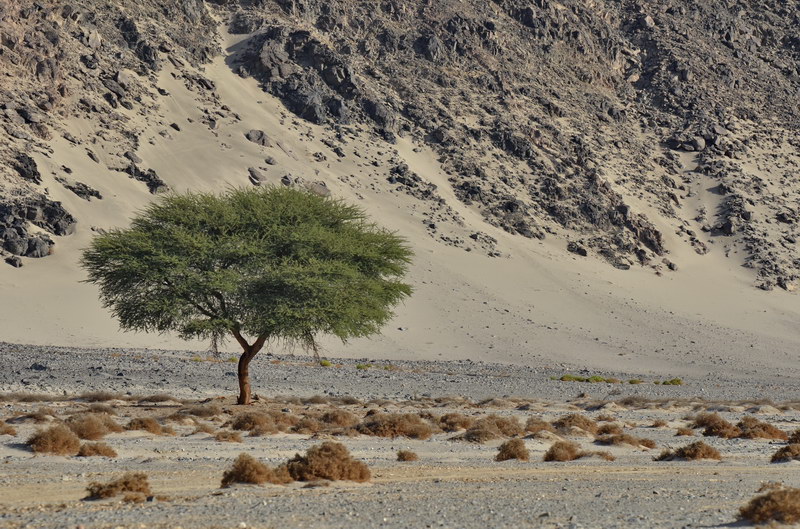
By: Francesco Tommasinelli
Cutting a live tree is punishable by tribal law. The perpetrator is tried by a tribal council and made to pay a fine, and is sometimes banished from the tribe. An Acacia is deemed dead and usable as dry wood by a council of tribe elders who examine the tree to ensure it is lifeless before it is allowed to be cut down.
DEATH & BURIAL
Ababda don’t have cemeteries, but individual gravesites for their dead. Unless they request to be buried at a specific site before their passing, the dead are buried where they died. With no head stones, rocks and a flag marks the gravesite.
The dead are revered and respected, often referred to as “our grandmother” and “our grandfather”. Gravesites are blessed places and Ababda choose to camp near them when they can
TRADITIONAL VACATIONS & LIVELIHOOD
Traditionally a pastoral herding people, Ababda also learn to fish from a very young age. Women fish, and it is the mothers that teach their children the craft. The sea has always been the last resort when conditions become too unfavorable for herding and trade. Artisanal fishing methods include line fishing at dawn and spear fishing in the afternoon. Ababda fish primarily for sustenance, but depending on the catch would also sell fish for extra income.
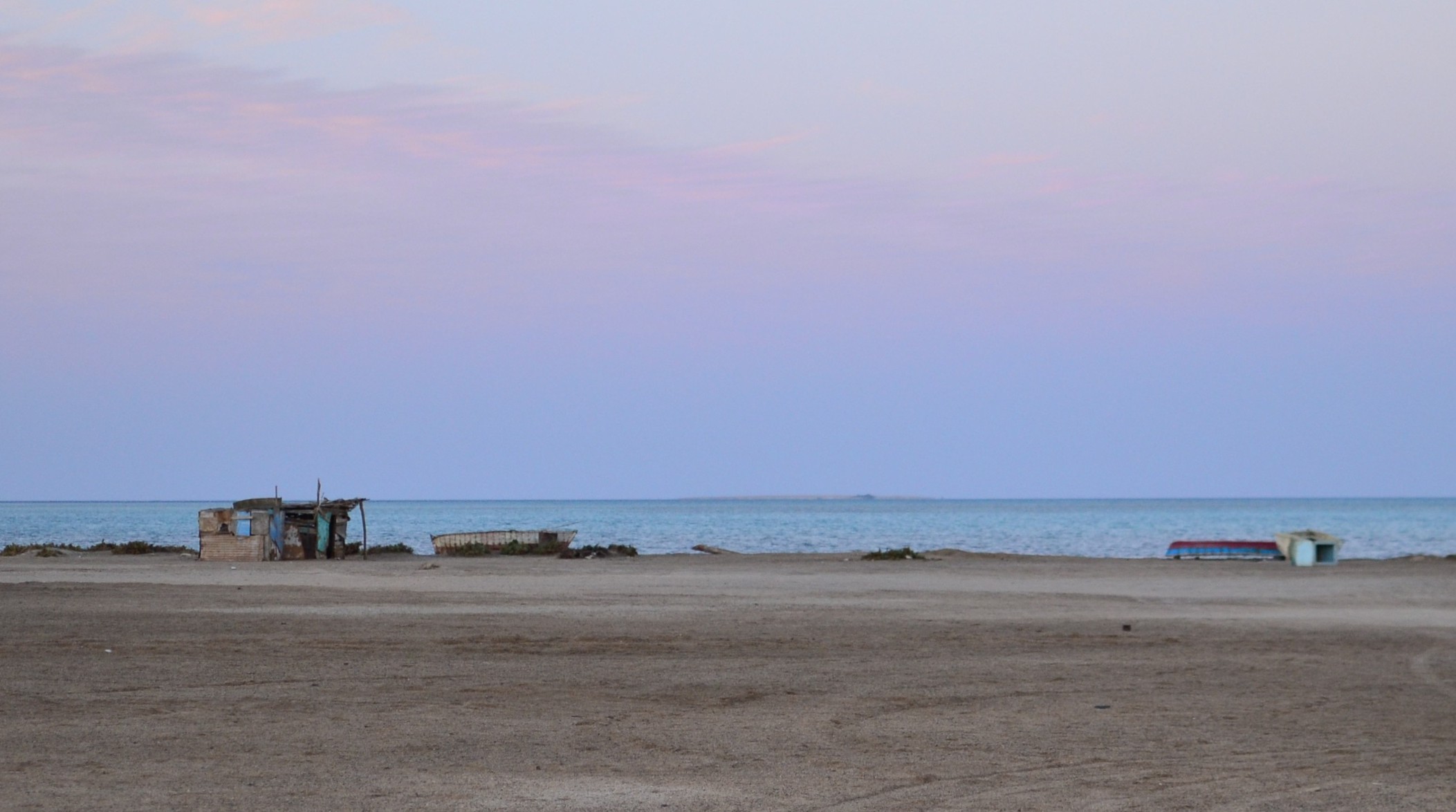
By: Reem Labib
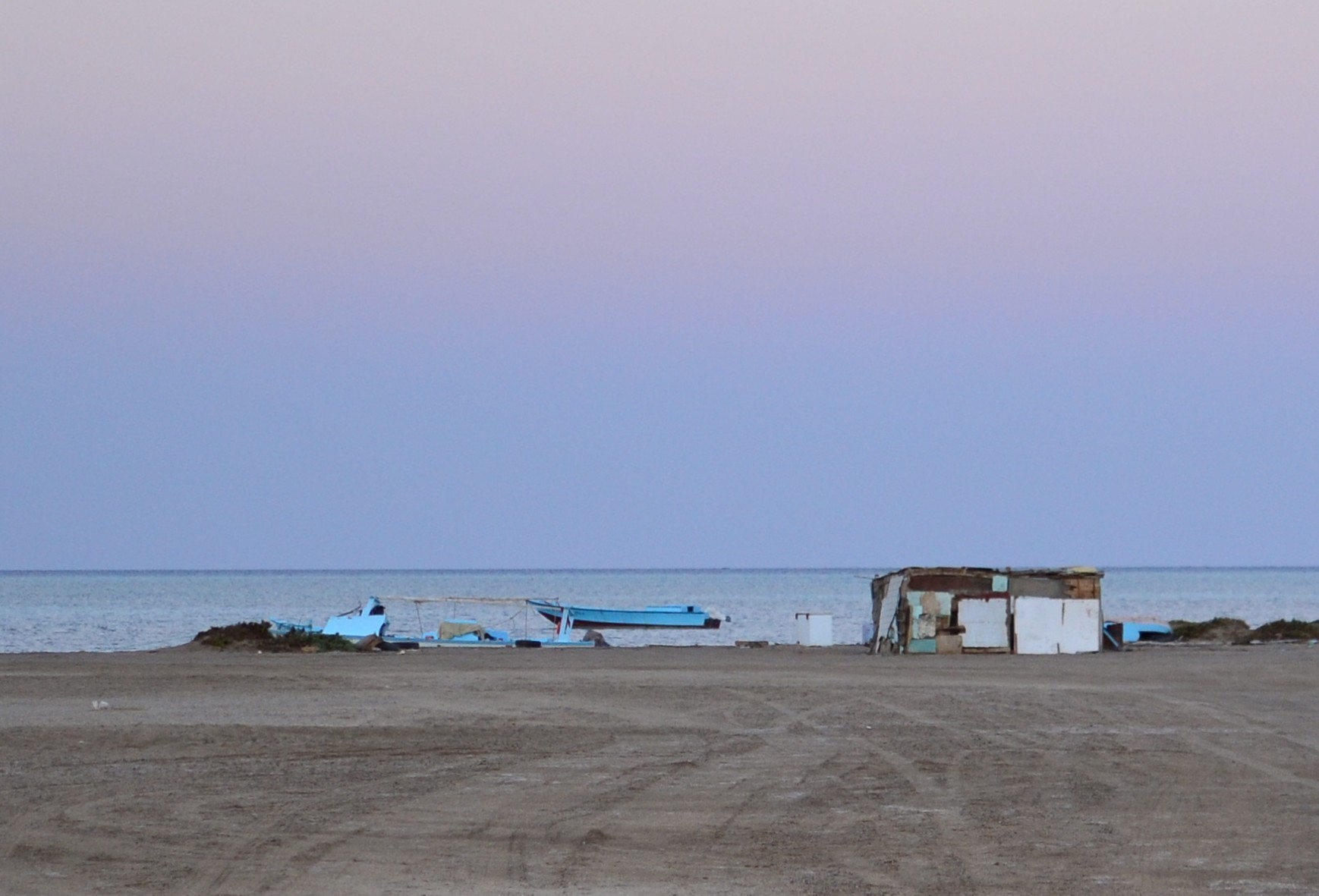
By: Reem Labib
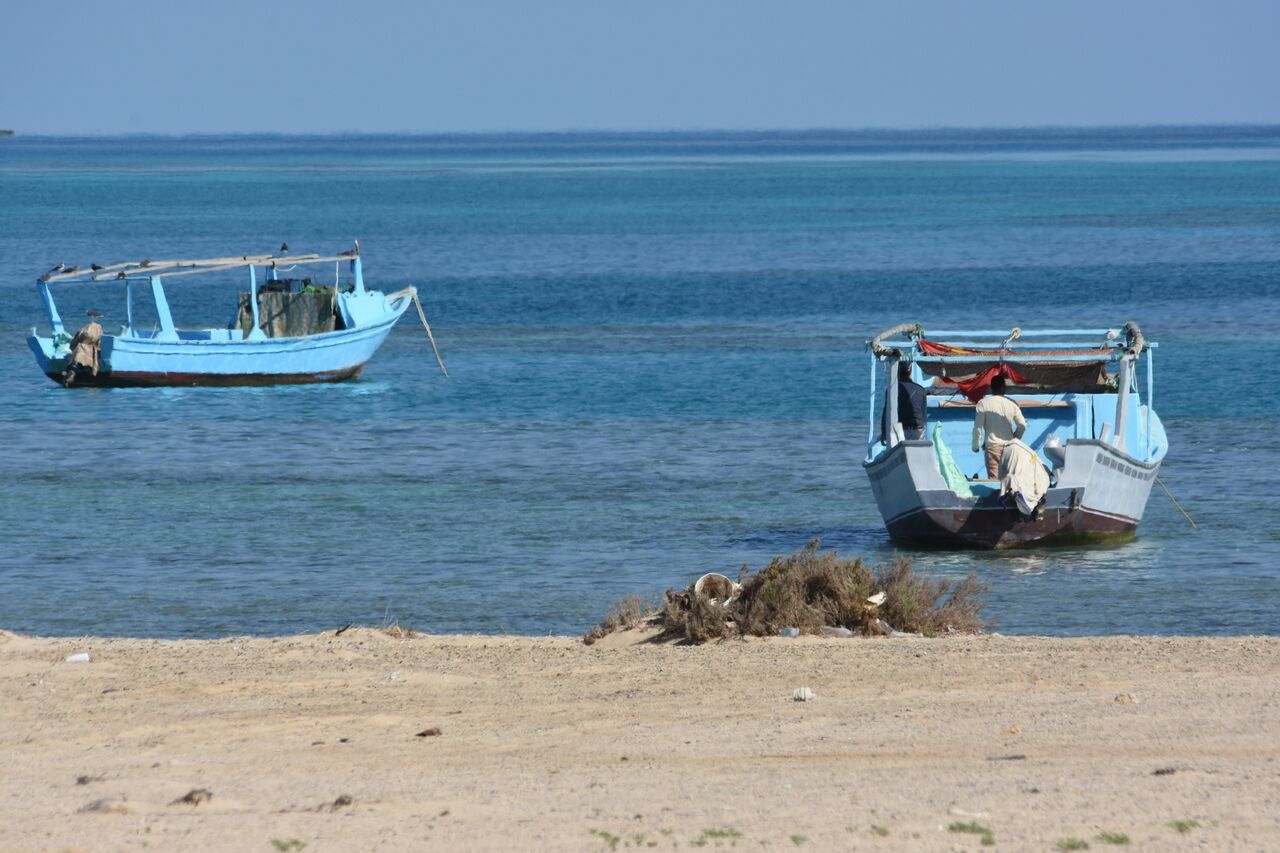
By: Gianni Bodini
Aside from herding and the associated trade, Ababda have always sought livelihood opportunities with the sedentary Nile Valley civilization expanding into or using their ancestral lands. A lot of them have worked desert guides and drivers in modern times. When available, they seek steady employment in government institutions, such as the public El-Nasr Minig Company or the WGNP offices.
Though not a majority, when presented with education opportunity, and having the personal inclination, a number of Ababda pursue typical education and career paths in various sectors. This is especially true for those living near the bigger cities.
But as diversified as the Ababda are in their vocational pursuits, while having maintained their traditional livelihood occupations of herding and fishing, their absolute absence from the big tourist hotels in their area is glaringly evident.
This is not because they will not apply themselves in the tourism sector. Indeed, a lot of them work as tour guides and drivers. And Qulan and Hankorab Beach are both community-managed enterprises led and mostly staffed by Ababda. The reason for lack of Ababda working in the resorts is cultural: While they find prestige and dignity in employment as public servants for the government, Ababda view working in subservient positions catering to a service industry, especially ones run by a non-Ababda outsider, as shameful and undignified.
“We want to receive tourist guests and show them our culture, not serve them”, a community leader replied when asked why there aren’t any Ababda working in hotels.
Additionally, experience in hiring Ababda in some tourist resorts was fraught with racial tensions. Ababda staff were mistreated and racially discriminated against by their co-workers hailing from rural Egypt. This might also explain their disdain for such positions.
